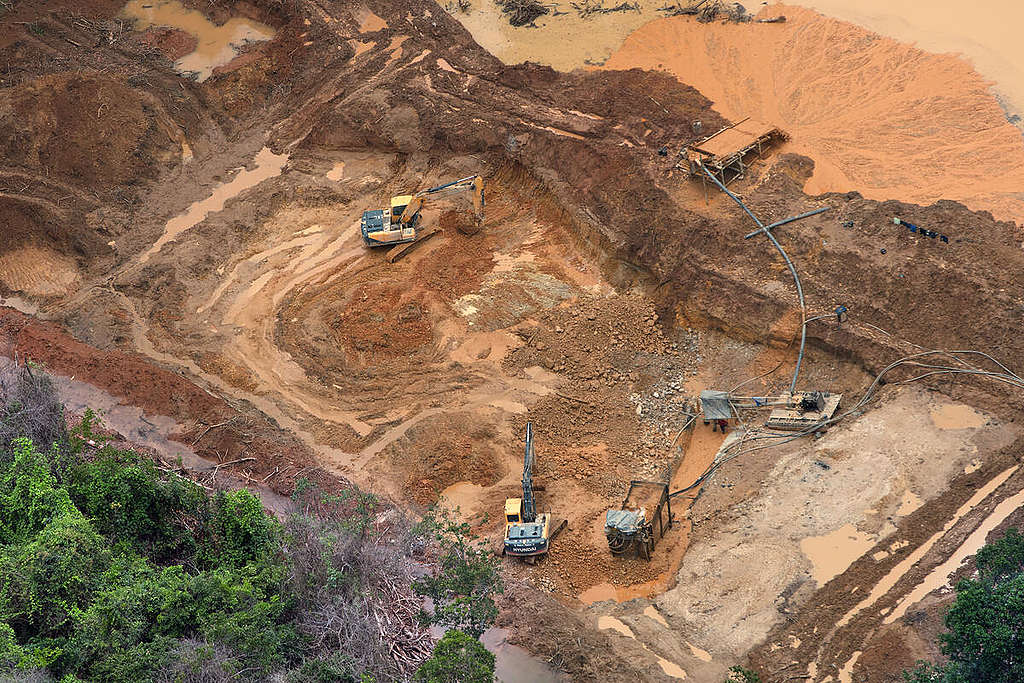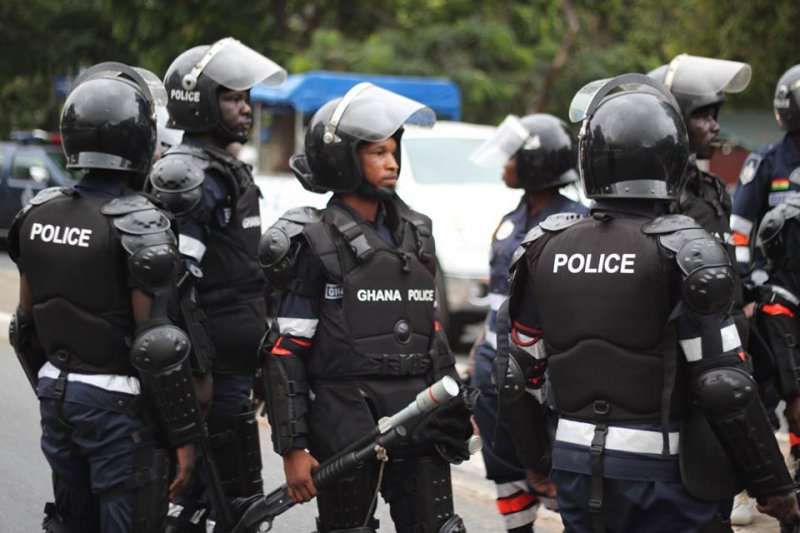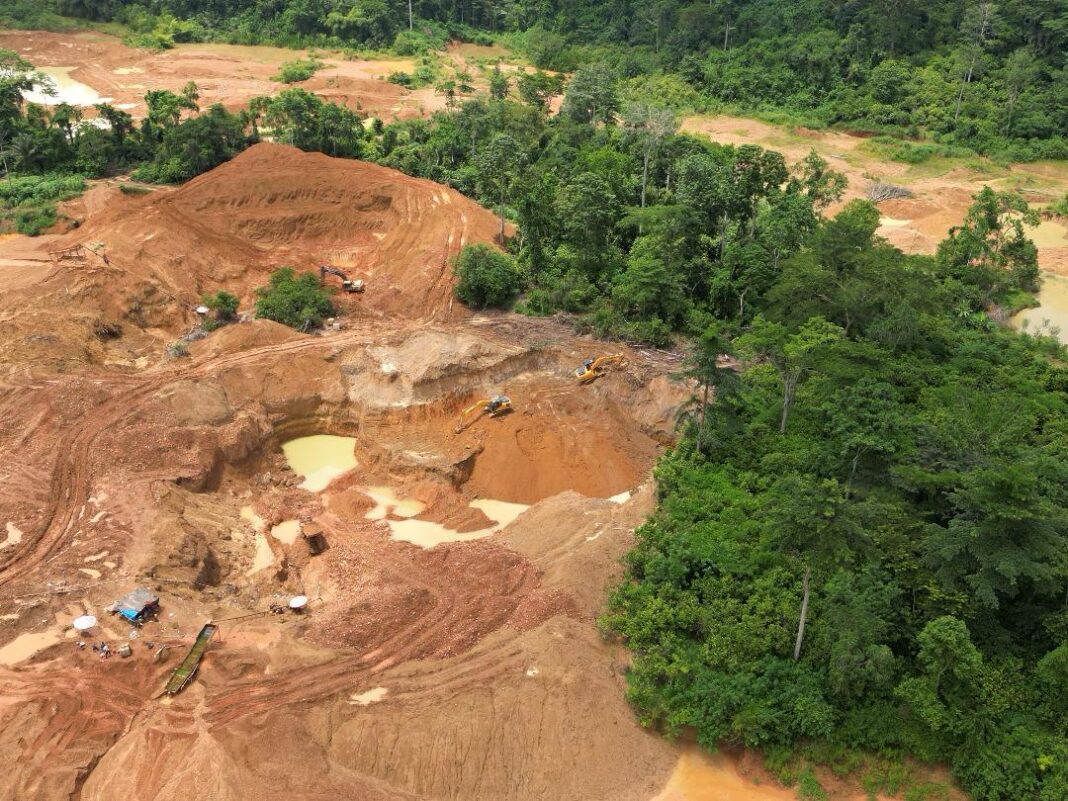A team of military task force officers from the National Anti-Illegal Mining Operations Secretariat (NAIMOS) were rescued by the Ghana Police Service in the town of Hwediem, Ahafo Region, after coming under attack from an angry local mob. The incident occurred when the soldiers arrested two suspected illegal miners and seized vehicles and weapons at a mining site near Bronikrom–Hwediem.
According to police sources, tensions quickly escalated as some residents confronted the officers, forcing police to intervene. With the help of community leaders, the soldiers were safely evacuated to Kenyase. Calm has since been restored in the area.
The confrontation began after the NAIMOS task force carried out an operation at a mining location close to the Hwediem–Goaso highway. Two individuals accused of engaging in unauthorised mining were taken into custody, and several items—including vehicles and firearms—were confiscated. This sparked unrest among some locals who attempted to resist the arrests, resulting in a brief but intense standoff until police reinforcements arrived.
The Hwediem incident was part of a larger crackdown on illegal mining in the Ahafo Region. In a separate operation, the task force reportedly raided another mining site located barely ten metres from the main highway. Several individuals, including a Burkinabé national, were arrested, and heavy equipment was seized.
Officials said the illegal activities had caused extensive environmental degradation and contaminated nearby water bodies, threatening farms and livelihoods. The affected area has since been cordoned off to prevent further encroachment.
The Attack on the Military Task Force
Illegal small-scale mining—known locally as galamsey—continues to pose a severe threat to Ghana’s environment, agriculture, and water resources. Studies conducted in the Ahafo Region have shown that mining activities along streams and rivers have led to increased levels of mercury and other heavy metals, making the water unsafe for human use.
The clash at Hwediem underscores how anti-galamsey enforcement often triggers local tensions, especially in areas where communities depend on mining for income. Across Africa, similar conflicts have emerged as governments attempt to balance environmental protection with the livelihoods of artisanal miners. Ghana’s situation reflects a broader continental challenge—ensuring sustainable mining while preventing illegal operations from undermining long-term development.

In communities across the Ahafo Region, the economic dependence on small-scale mining is evident. Many residents rely on galamsey for income amid limited job opportunities, even though the practice degrades land and pollutes rivers. In the Hwediem area, locals’ resistance to the NAIMOS team highlights how enforcement without community engagement can fuel unrest.
Environmental experts have repeatedly warned that uncontrolled mining in fertile agricultural zones could undermine food production, contaminate water sources, and increase the cost of restoration efforts for decades. The Ghana Water Company, for instance, has cited illegal mining as one of the major factors driving up the cost of water treatment nationwide.
NAIMOS was established under the Ministry of Lands and Natural Resources to coordinate and lead national anti-illegal mining operations. The agency works with the Ghana Armed Forces, the Police Service, and the Minerals Commission to dismantle illegal sites, arrest offenders, and confiscate equipment used in galamsey operations.
In recent months, NAIMOS has intensified operations in mining hotspots across Ghana, including the Western, Eastern, and Ahafo regions. Dozens of suspects have been detained, and excavators and dredging machines destroyed. However, these operations often meet resistance, as seen in Hwediem, where community members clashed with security personnel in protest.

Authorities report that stability has returned to Hwediem following mediation efforts by local leaders. The police have increased surveillance in the area to deter further illegal mining. NAIMOS has reaffirmed its commitment to sustaining nationwide anti-galamsey operations, emphasizing that no individual—whether Ghanaian or foreign—will be spared if found engaging in illegal mining.
Security analysts suggest that beyond enforcement, government must strengthen alternative livelihood programmes for mining communities. They argue that providing sustainable economic options—such as eco-tourism, reforestation, and regulated small-scale mining—can help reduce the risk of future clashes.

The Hwediem incident serves as a stark reminder that Ghana’s fight against galamsey is not only an environmental issue but also a social and economic one. As the government ramps up enforcement, success will depend on blending firm law enforcement with community participation and livelihood support. Without these measures, the cycle of raids, arrests, and resistance may continue, putting both security personnel and local residents at risk.

